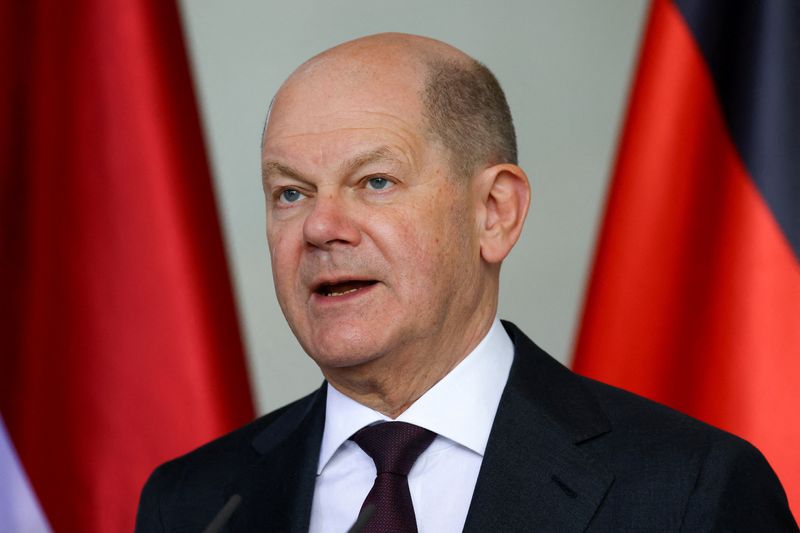BERLIN/FRANKFURT/MUNICH (Reuters) -Germany's top corporate brass will join Chancellor Olaf Scholz when he visits China later this month, reflecting an ongoing dependence on the world's second-biggest economy despite efforts to spread exposure more evenly across the globe.
Roland Busch, chief executive of Siemens and chair and president of the Asia-Pacific Committee of German Business, will be among the executives on the trip at the end of next week, the company said.
Mercedes-Benz (OTC:MBGAF) - which counts China's Beijing Automotive Group Co Ltd and Geely Chair Li Shufu as its two top shareholders - also confirmed that CEO Ola Kaellenius would participate.
Lab equipment and semiconductor chemicals maker Merck KGaA said its CEO Belen Garijo would join too.
The trip is Scholz's first to China since Berlin drew up a China strategy last summer that urged a "de-risking" to reduce economic exposure to the Asian powerhouse, but was vague on specific measures or binding targets.
German chancellors are usually accompanied by high-level business delegations on major foreign visits and the list of executives for the trip underscores China's status as Germany's biggest trading partner.
China also remains extremely important for German industry, most notably carmakers, which operate several local joint ventures with Chinese partners in what is the world's biggest auto market.
Last year, German direct investment in China rose to a record 11.9 billion euros ($12.9 billion), showing firms continue to plough money into a country that Berlin calls a systemic rival.
BMW (ETR:BMWG) boss Oliver Zipse and Bayer (OTC:BAYRY) CEO Bill Anderson will also travel with Scholz, people familiar with the matter said. The same goes for Miguel Lopez, who leads German industrial conglomerate Thyssenkrupp (ETR:TKAG), the steel-to-submarines maker said.
The list of CEOs is not definitive and more could join as the trip is finalised.
While Germany's biggest firms, including BASF and Volkswagen (ETR:VOWG_p), continue to bank on China as a growth motor, some smaller firms have started to change tack.

Germany's mid-sized corporations have begun to take steps to ringfence or legally separate their Chinese businesses, walking a tightrope between staying engaged in the market and preparing for a worst-case scenario should Beijing invade Taiwan.
($1 = 0.9208 euros)